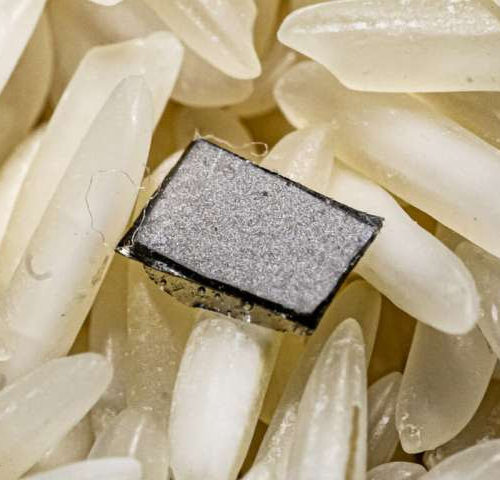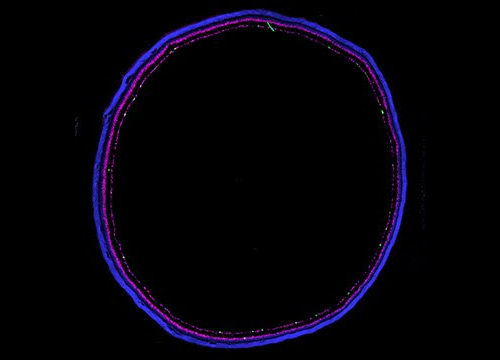by Rice University A sample of Rice University’s ‘magnetoelectric’ film atop a bed of uncooked rice. Rice neuroengineers created the bi-layered film to power implantable neural stimulators that are approximately the size of a grain of rice. The film converts energy from a magnetic field directly into an electrical voltage, eliminating the need for a...
Tag: <span>environmental</span>
ARE YOU READY FOR THIS SUMMER’S CICADA INVASION?
After 17 years underground, cicadas will make their return in 2020—amassing in the millions in parks, woods, and other outdoor spaces. While the numbers might seem alarming, never fear. The critters may prove a nuisance, but they’re actually harmless, says Gary Parsons, an entomologist at Michigan State University. Here, Parsons digs into the life of...
Continuously active surface disinfectants may provide additional barrier against the spread of viruses
by Rosemary Brandt, University of Arizona In the battle to slow or prevent the transmission of viruses, such as the novel coronavirus, continuously active disinfectants could provide a new line of defense, according to a recent University of Arizona study released on the health sciences preprint server MedRxiv. While disinfecting high-contact surfaces is an important...
New liver cancer research targets non-cancer cells to blunt tumor growth
by Perelman School of Medicine at the University of Pennsylvania “Senotherapy,” a treatment that uses small molecule drugs to target “senescent” cells, or those cells that no longer undergo cell division, blunts liver tumor progression in animal models according to new research from a team led by Celeste Simon, Ph.D., a professor of Cell and...
Chemicals often found in consumer products could lead to obesity and fatty liver diseases
While poor nutrition and lack of exercise contribute to obesity, exposure to these compounds could trigger lifelong susceptibility to weight gain, Baylor University researcher says Chemical compounds found in many consumer products could be major contributors to the onset of lipid-related diseases, such as obesity, in humans, according to a Baylor University study. Until recently,...
Researchers discover biomarkers of ALS in teeth
New York, NY (May 21, 2020)–Mount Sinai scientists have identified biological markers present in childhood that relate to the degenerative and often fatal neurological disease called amyotrophic lateral sclerosis, also known as ALS or Lou Gehrig’s disease, according to a study published in the Annals of Clinical and Translational Neurology in May. (https://www.youtube.com/watch?v=Bw-_XUZssMM&feature=youtu.be) The researchers...
Eyes send an unexpected signal to the brain
The eyes have a surprise. For decades, biology textbooks have stated that eyes communicate with the brain exclusively through one type of signaling pathway. But a new discovery shows that some retinal neurons take a road less traveled. New research, led by Northwestern University, has found that a subset of retinal neurons sends inhibitory signals...
Celiac disease linked to common chemical pollutants
Elevated blood levels of toxic chemicals found in pesticides, nonstick cookware, and fire retardants have been tied to an increased risk for celiac disease in young people, new research shows. According to NYU Grossman School of Medicine researchers who led the study, people with the immune disorder have severe gut reactions, including diarrhea and bloating,...
Children’s grief in quarantine may look like anger: Here’s how parents can respond
by Elena Merenda and Nikki Martyn, The Conversation Children may be struggling with feelings of abandonment and a loss of security in their lives. Credit: Shutterstock COVID-19 has taken the world by storm and profoundly changed the lives of children and families. Children aren’t going to school and many businesses have temporarily shut down. Many...
Controlling your home by the power of thought
Walking across the room to switch on a light – such a simple everyday activity involves enormously complex computations by the brain as it requires interpretation of the scene, control of the gait and planning upcoming movements such as the arm movement to the light switch. Neuroscientists at the German Primate Center (DPZ) – Leibniz...






